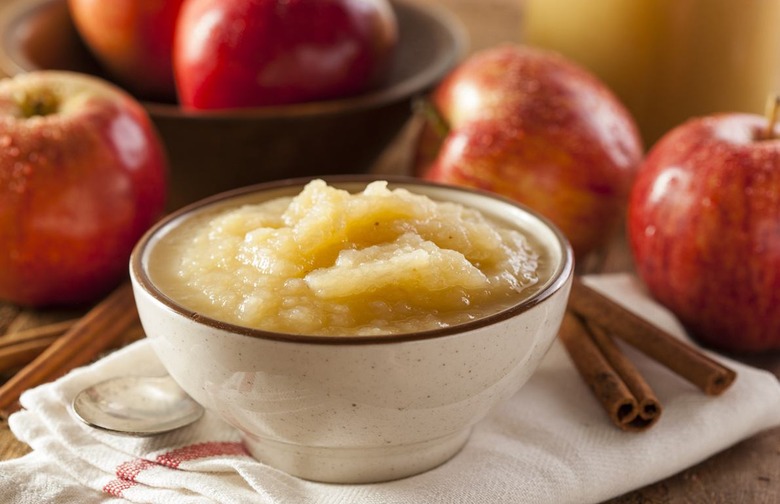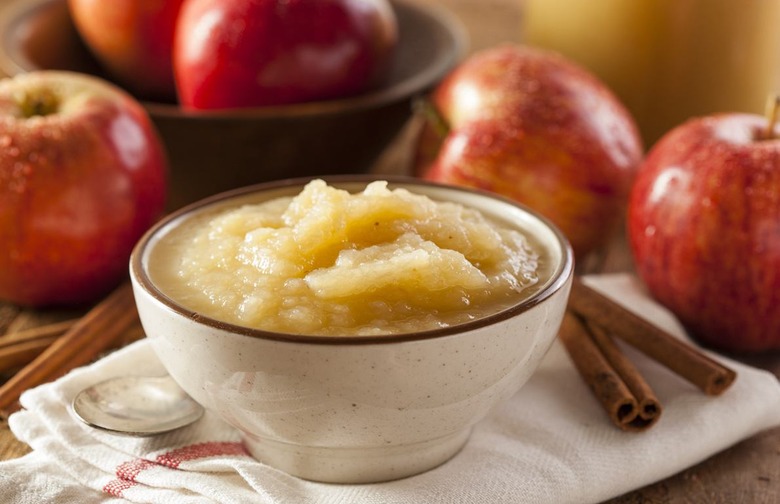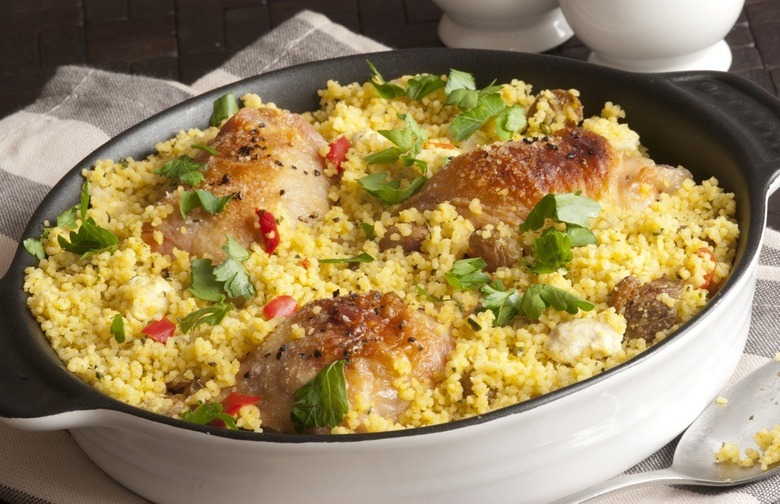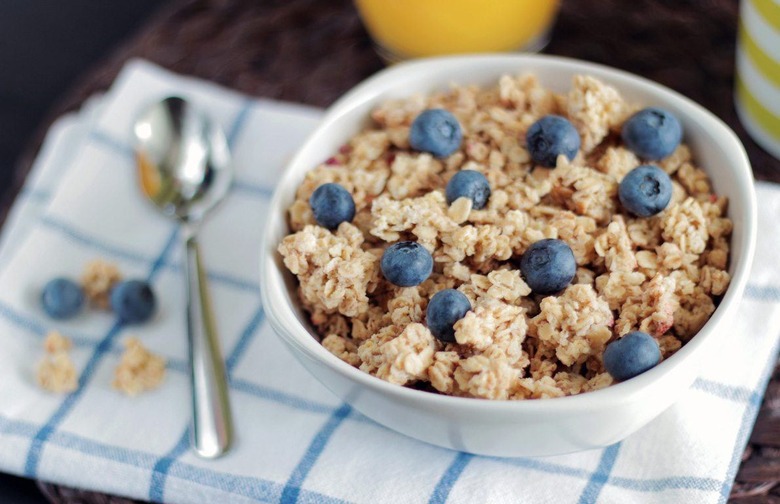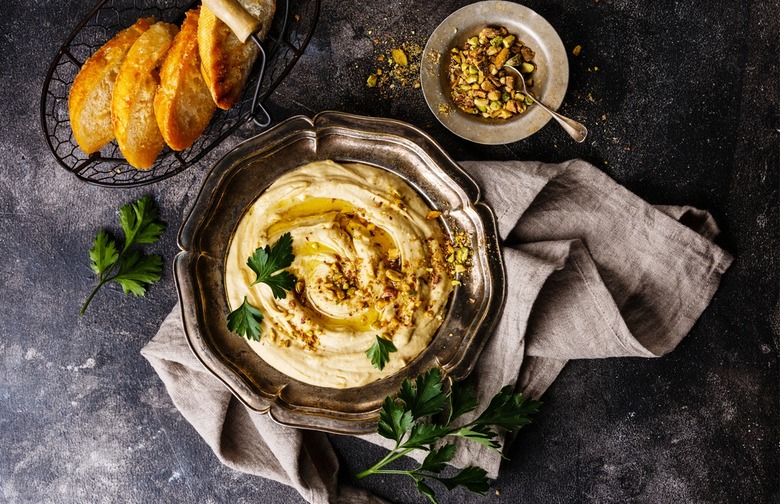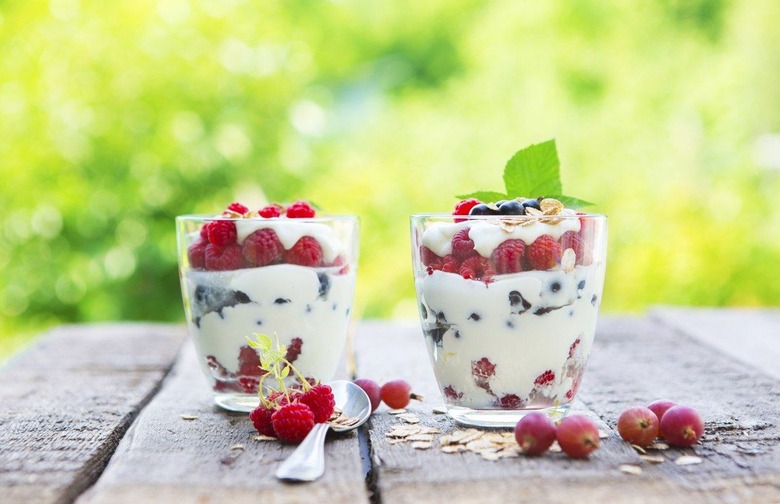15 Packaged 'Health Foods' That Are Making You Fat Slideshow
Apple Sauce
This childhood favorite has a home in school lunch boxes, but this sweet treat has a nutritional profile more similar to a soda than an apple. High fructose corn syrup is included in many prepackaged apple sauces, boosting the sugar content of a four-ounce container to 22 grams. For a healthier, homemade option try this cinnamon-cherry applesauce recipe.
Blue Corn Tortilla Chips
The beautiful royal blue kernels of blue corn (also known as Hopi maize) do contain a different set of compounds than those of its traditional counterpart, but when it's heavily processed and fried, these differences diminish. Blue corn tortilla chips are still caloric, with a single eight-ounce bag containing 1,260 calories. Their salty yet alkaline taste makes it easy to unknowingly munch through the whole bag.
Bottled Smoothies and Juices
There's been a monumental shift away from traditional apple, orange, and grape juices towards the "cold-pressed" juices and smoothies. Despite their packaging exteriors which are usually gilded with whole fruits and vegetables, these beverages are loaded with sugar (albeit natural) and contain very little in the way of nutritional benefits or fiber. Some popular smoothie brands can contain as much as 50 grams of sugar per 16-ounce beverage.
Couscous
It usually sits beneath a rich and aromatic Moroccan chicken stew, but this Middle Eastern staple is really just pasta in disguise. Couscous uses refined flour that is very low in fiber and stripped of its nutrients. Although it's not the worst thing you can put in your body, it's certainly far from the best. Whole-wheat couscous does exist, but you're better off using millet, farrow, kamut, or another incredibly healthy whole grain.
Gluten-Free Baked Goods
Despite the fact that less than one percent of Americans are believed to be have celiac disease, customers and food brands alike have gotten caught in the gluten-free food obsession. To mimic the taste and texture of wheat gluten, companies will use corn, oat, and rice flours, which aren't necessarily better for you. One study found that participants who consumed rice-flour-based baked goods had higher levels of metals within their system than the control group, which is linked to rice's natural arsenic and metal content.
Granola
Granola used to be the posterchild of the alternative food movement, the breakfast of choice for holistic doctors, the Seventh-day Adventists, and hippies of the 1960s. But these groups would not be able to recognize the current iteration of granola because of all the added sugars and processed ingredients. What was meant to be textured, chaste, and restrained, is now sweet, indulgent, and caloric. Thankfully, granola is easy to make at home, enabling you to control the sugar content.
Hummus
A traditional Middle Eastern dish, hummus is commonly made with chickpeas (but it can also be made with beets, lentils, or butternut squash), tahini (sesame paste), lemon juice, cumin, garlic, and olive oil. Although these ingredients aren't unhealthy on their own, the calories can really add up when the dip is paired with chips, pretzels, or pita bread. Avoid the extra calories by using carrot sticks, celery stalks, or cucumber slices.
Nutrition Bars
Many popular protein bars have a nutritional profile that reads like any other junk food, but the way they are packaged and marketed makes them appear to be perfect for the active, athletic, and health conscious. These bars are usually around 250 calories and can contain up to five teaspoons of sugar. They also aren't especially effective at keeping you full. When shopping for nutrition bars, look for clean labels, and be especially wary of alternative sweeteners, brown rice syrup, or sugar alcohol.
Peanut Butter
A natural, lightly processed peanut butter is a smart addition to smoothies or sandwiches, but not all peanut butter is made with just ground peanuts. Some of the more popular brands of smooth and creamy peanut butters use hydrogenated vegetable oil (also known as trans-fat) to keep the oil from separating. You'll notice that natural peanut butters have a layer of peanut oil on top while processed brands like Skippy do not. Trans-fats have been confirmed to contribute to cholesterol and heart disease.
Pita Chips
Maybe because of their close association with the Mediterranean diet, many people mistakenly believe that pita chips and pita bread are a healthy-carb option. Pita chips are not usually fried, but they're made with enriched wheat flour, which the body quickly processes into simple sugar. They aren't low in calories either; 10 chips are 130 calories.
Organic Frozen Foods
Food brands have done an excellent job unjustifiably using the organic food label to connote a healthy image for their products. Unfortunately, frozen organic pizza, macaroni and cheese, or burritos will never be health foods. One popular brand of frozen enchiladas is "made with organic ingredients," but still contains almost 500 calories and 12 grams of saturated fat, which is more than 50 percent of your recommended daily allowance.
Spinach Wraps
"Spinach wrap" sounds like a dieters dream, but don't be fooled by the name — this is a tortilla in disguise. The first three ingredients — enriched bleached white flour, water, and vegetable shortening — are no different than any other tortilla. The green hue comes from a small amount of spinach power and food dye.
Sweetened Iced Tea
Tea is celebrated throughout the world for its beneficial health properties and cultural significance, but when it's loaded with sugar or high-fructose corn syrup, it's transformed into junk food. Many packaged iced teas market themselves as a healthier alternative to soda, and as a result, sell larger bottles. A 23-ounce can of Arizona Iced Tea Lemon Flavor contains a whopping 72 grams of sugar. These drinks are especially popular with kids because they only cost 99 cents; but with no screw-on top, these cans of iced tea are usually consumed in one sitting.
Veggie Chips
We've grown so accustomed to the idea of "potato chips" as snack food, that it's easy to forget that potatoes are still a vegetable. Veggie chips are just as bad for you as any other thinly-sliced, fried vegetable. A three-ounce serving of traditional veggie chips contains 500 calories, 20 grams of fat, and loads of sodium. These are a fine snack in moderation, but eating a whole bag does not provide you with your daily serving of vegetables. Save some calories and money and make your own veggie chips.
Yogurt
Yogurt's high protein and probiotic content has shifted this breakfast staple into the superfood arena, but not all cultured dairy products are beneficial. Dairy products naturally contain sugar in the form of lactose, but many prepacked brands offset yogurt's natural tang with teaspoons of added sugars. To get the most out of yogurt, stick with the lightly sweetened variety — anything under 16 grams of sugar per six-ounces is fine.
